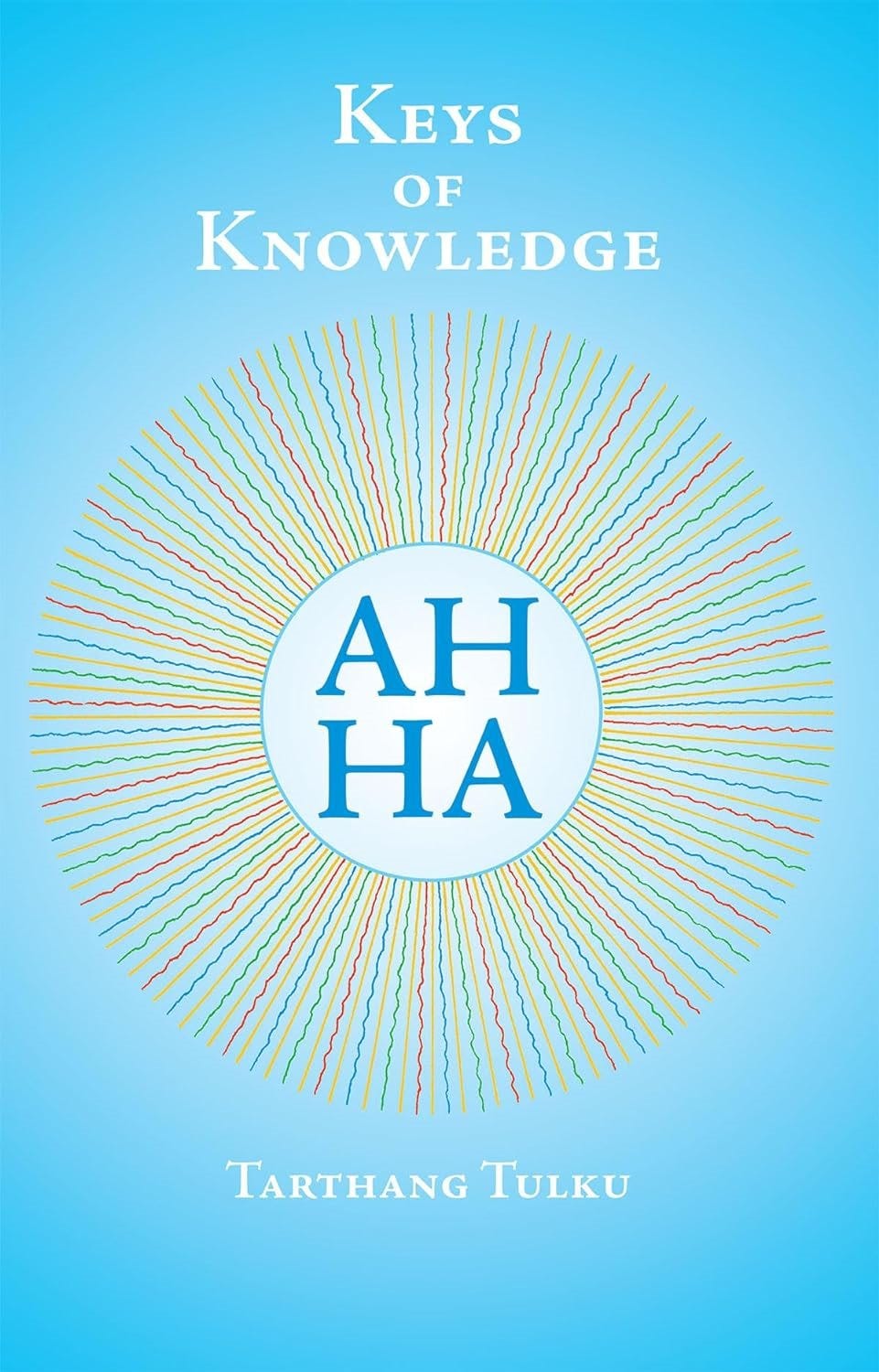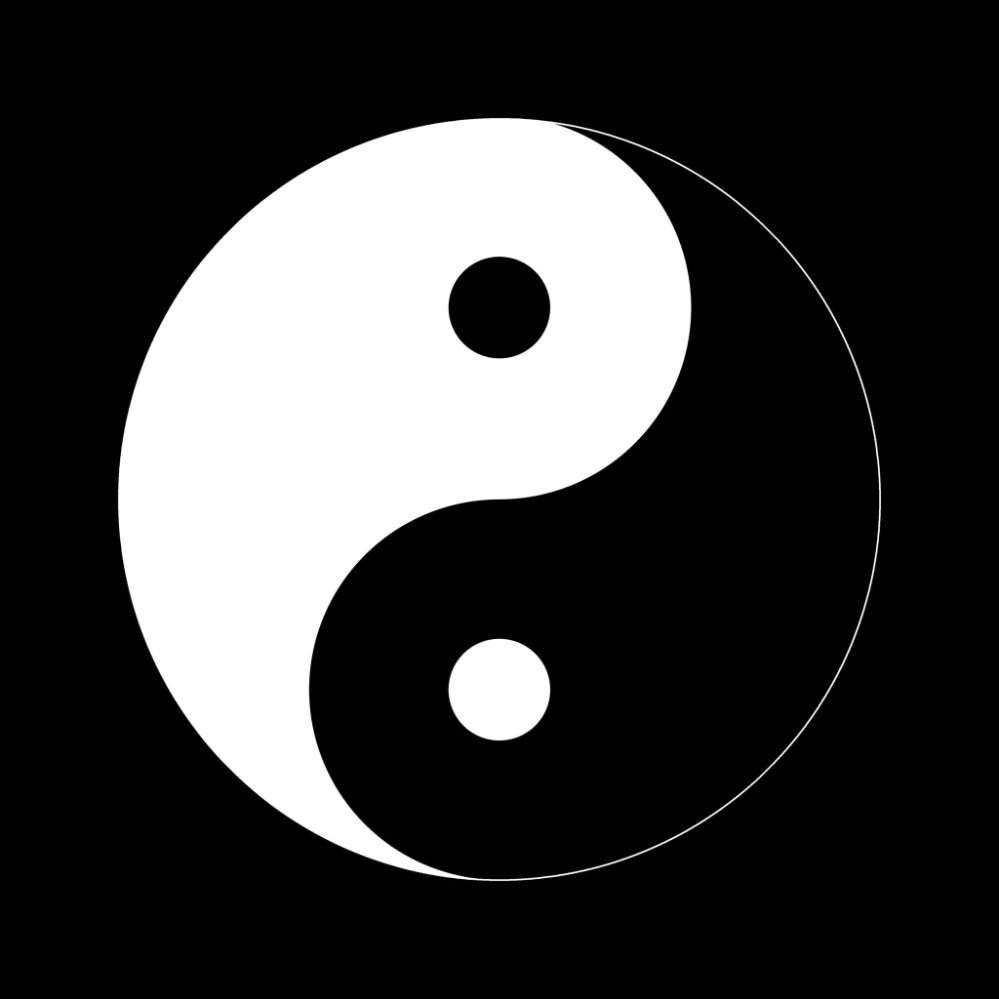A few days ago I wrote a blog entitled: Embodied Knowing, subtitled: Enactivism and Embodied Knowing. Recognizing that our Western culture’s dualistic norm posits that subjects and objects are seperate things, challenging this seperation, insisting that they are mutually and profoundly interdependent, may sound nonsensical. It is just common sense that our ability to observe - to be subjects - is a function of our brains and our sense organs; i.e. - functions of our body, which is a unit within the bigger ecosystem. Embodied Knowing is saying something radically different. Embodied Knowing is non-dual; repeating a quote from the previous essay:
... the embodied cognition research program, particularly the version known as enactive cognitive science, emphasized the importance of the body and interactions with the environment for understanding the mind. Cognition is not located in the head, but instead resides in the ongoing, active relation between the embodied agent and the physical and social environment. Cognition of a meaningful world is brought forth or enacted through situated bodily action. The Blind Spot. Frank, Gleiser & Thompson 164
Embodied knowing has profound importance for our understanding of an ecosystem. We are not seperate observers of ecosystems, but rather we are embedded within ecosystems. This is the first of the 4 E’s of enactivism. The other three being: embodied, enactive, and the extended conception of mind (Newen et al., 2018).
The point is that dualistic understanding leads to reductionistic explanations rather than holistic understanding. Reductionistic explanations fail to encompass the unity of Earth’s ecosystem with all its inhabitants and inevitably divides the natural world from it’s inhabitants and divides people from each other by failing to understand that we are all in this together. Non-reductionistic understanding that we all share the whole planet will remove obstacles to accomplishing what ecological science has revealed is necerssary and our technology is prepared to deliver - getting carbon out of the atmosphere and restoring habitat diversity. We can become united in thinking globally and acting locally.
Healing the split between subject and object, body and mind, requires work. Work to understand conceptually what non-duality is all about, and work to practice a different way of thinking and living. Non-duality is a core principle in Mahayana Buddhism, which teaches that all phenomena are interdependent and empty of self-essence. Today I want to expand this discussion by looking at a chapter entitled “We Embody Knowledge” from a book by Tibetan Lama Tarthang Tulku from his 2016 publication - Keys of Knowledge.
For knowing to know knowing, it must open up its knowns including 'subject' and 'object'; it must explore the meanings of words, the meaning of truth, the meaning of reality, the meaning of all our points - the meaning of meaning itself.
Once we open those petals, we may discover a new way to know, and a new knowledge that is not penned within a doctrine, nor imposing a new rule, but uniquely capable of nourishing our arts and sciences, transforming all our modes and means of being human. What we call the unknown can play a part in this great unfolding; for the unknown is a critical component of the path, giving us somewhere to go and space to grow.
When we learn to welcome the unknown, we embrace mistakes, misinterpretations, even confusion; these can help keep our convictions from becoming rigid, and teach us that the knowns are valuable not in themselves but because they are vehicles of knowing.
When unknown and known are seen to be intertwined and mutually supporting, new knowledge arises, open knowledge.
The embodiment of this open knowledge is the real potential of the self; comprehensive, global knowing, without position or identification. Keys of Knowledge 153-154
It will take a transformation of “all our modes and means of being human” to reach a critical mass of people, a tipping point, that will allow us and all the beings on the earth to flourish into the far future.
You might imagine that the white part of the Yin-Yang symbol is what we know, and that the black part represents the unknown. Rather than going to war against the unknown, we can appreciate that the unknown makes us whole. The part illuminated by our usual ways of knowing always casts a shadow.
When knowledge still revolves around the self's short term needs, you will find there are gaps, wastelands, and blank areas on the map, the result of knowledge drawing in on itself according to its patterns and policies. But these gaps too can be explored; the places where our knowledge breaks down can become our teachers. Keys of Knowledge 157
The shadow is our teacher, not our enemy. Our enemies must become our teachers. This, of course, is not easy! It begins with insight into the nature of our situation, but that insight needs to be coupled to practice. Tarthang Tulku writes:
The first step is to permit ourselves to pause, to stop treading the spiral path of negativity, to recognize those patterns as fossils, long-vacated empty shells. We will discover, if and when we are able to do this, that energy for great creativity is released.
The next step is to engage in deep contemplation. But this doesn't necessarily mean cutting our ties, and retiring into a cave to practice. In contemplation, in deeply relaxed exploration, we draw closer and closer to the nature of mind - mind in life, in our experience, here and now.
Knowing mind can learn to contemplate itself; mind can look in its own mirror...
Practice may be needed in order to stabilize this seeing. Many of us have caught glimpses of this play of mind for a few moments, but seeing will need support to carry on longer than that. It is worth patiently cultivating, for even a few minutes of this kind of contemplation can make a powerful impact on understanding. Keys of Knowledge 159
All our experience could be put to use, recovered and reconciled, composted and transformed. Our refining process for neurotic patterns creates energy that can power contemplation, wisdom, and compassionate action. Keys of Knowledge 160
This change in direction doesn't just nourish us; it affects how we communicate with others, and adjusts the way we perceive all signaling. All the operations of our senses, all the ever-shifting manifestations of mind, have treasures to share. Keys of Knowledge 162
Dharma College offers opportunities to explore and practice non-duality to heal ourselves as individuals and the whole of our beloved planet. The next Dharma College class - on Zoom - is coming soon. There will also be an in-person retreat at the Ratna Ling Retreat Center (Cazadero, California) on Embodied Ecology over Mothers’ Day weekend in May.
The Zoom Class - Embodied Ecology:
The Work that Connects Us to Place
Tuesdays March 11- Apr 22, 2025, 10:00- 11:30 am PST
Video recordings available for six months in a private community portal
Free cancellation after first class



